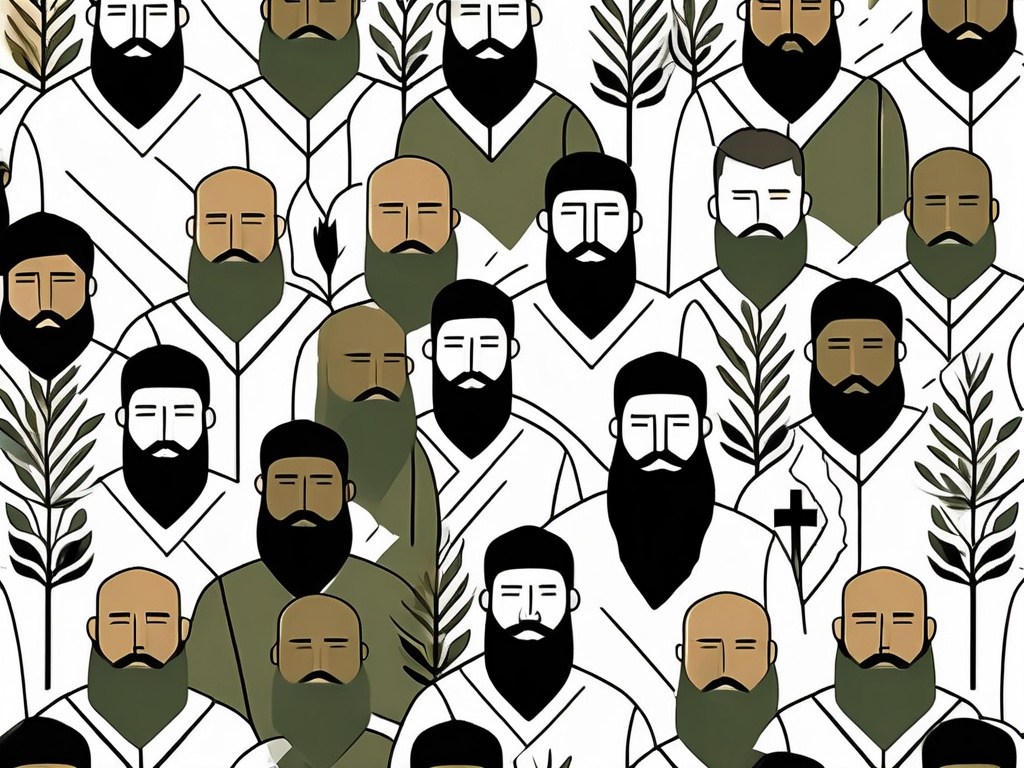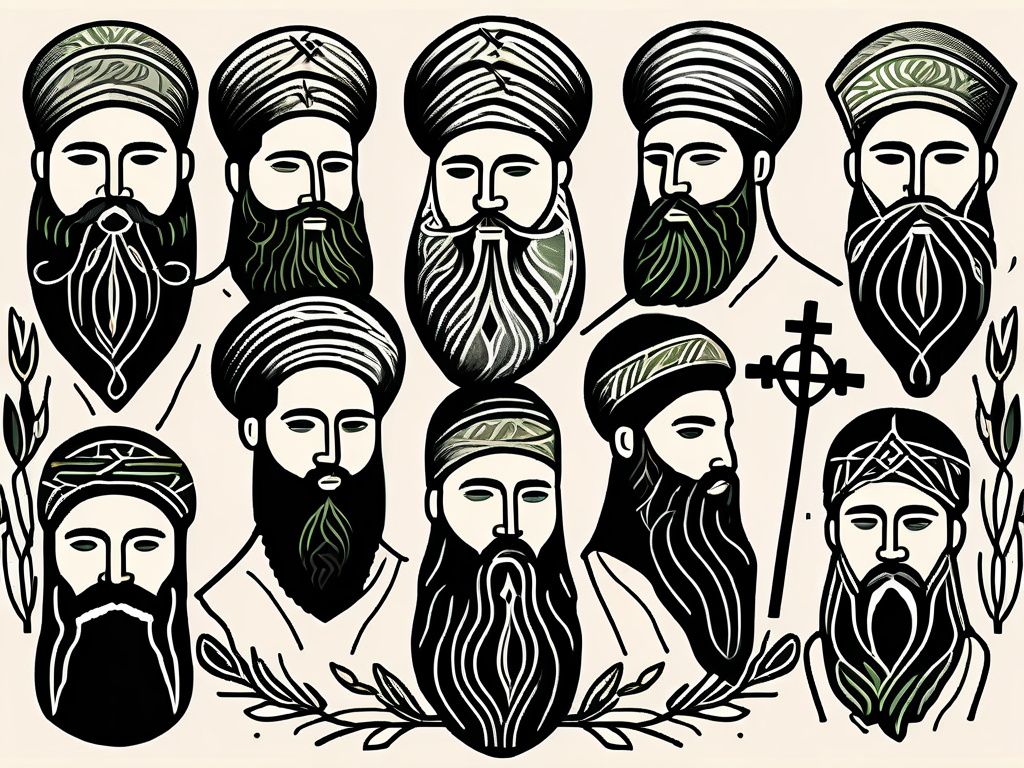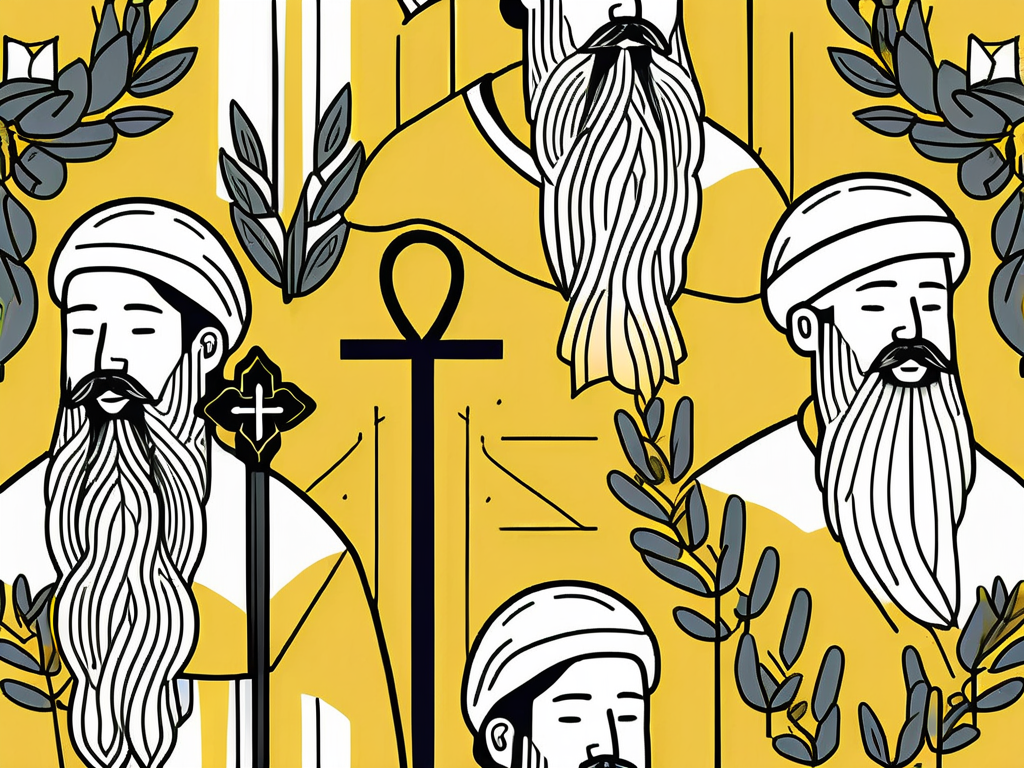Trustpilot (10,766+ Reviews)
Trustpilot (10,766+ Reviews)
Author: Faiysal Kothiwala
Published at: Jul 31, 2024
In the ancient world, beards were not just a fashion statement; they carried significant meaning and symbolism. The Bible, in particular, contains numerous references to beards and their symbolic significance. So, let's see what the beards are the symbols of in the Bible. Read on and learn:
In the Bible, beards often symbolize wisdom, dignity, and masculinity, reflecting a man's status, maturity, and adherence to cultural and religious traditions.
Throughout the pages of the Bible, beards serve as more than just facial hair. They are woven into the tapestry of biblical narratives, symbolizing diverse themes that enrich the understanding of characters and their roles in the grand scheme of divine providence.
Many biblical figures renowned for their physical strength were often depicted with beards. Samson, the legendary strongman, had a mighty beard, symbolizing his unparalleled power.

The connection between beards and strength goes beyond mere aesthetics. In ancient societies, a full, robust beard was often associated with virility and vigor, qualities essential for warriors and leaders alike.
Thus, the presence of a beard on a figure like Samson not only emphasized his physical might but also underscored his role as a formidable force against adversaries.
Beards were seen as a sign of religious devotion and piety. Men who were deeply committed to God's commandments and observant of religious rituals often embraced the growth of their beards, considering it an outward expression of their inner faith.
In the context of piety, the beard served as a visible marker of one's dedication to spiritual matters. By allowing their beards to flourish, individuals demonstrated their submission to divine will and their separation from worldly concerns.
This outward display of faith not only set the devout apart from others but also served as a reminder of their sacred obligations in a world filled with distractions and temptations.
Before exploring the symbolic significance of beards, it is essential to understand the cultural context in which they were revered. In ancient times, the Middle East, including the regions mentioned in the Bible, considered beards as a crucial aspect of masculinity and identity.

Beards were not only a physical feature but a cultural symbol deeply ingrained in the societal norms of biblical times. The grooming and maintenance of one's beard were meticulous processes that showcased a man's dedication to his appearance and status.
Men would often use beard oil and balms to keep their beards healthy and shiny, further emphasizing their commitment to upholding societal standards of beauty and masculinity.
Beards were a symbol of manhood, authority, and social status in biblical times. They represented strength and virility, distinguishing men from boys. The length and thickness of a man's beard were often seen as measures of his power and prominence in society. The beard became a reflection of one's dignity and honor.
Furthermore, the act of grooming one's beard was a ritualistic practice that signified a man's dedication to his role in the community. It was not just about the physical appearance but also about the discipline and respect that came with maintaining a well-kept beard.
Men would often gather to discuss matters of importance while grooming their beards, creating a sense of camaraderie and unity among them.
Moreover, beards were associated with wisdom and maturity. As facial hair tended to grow as men advanced in age, long beards were seen as a visible sign of someone's accumulated wisdom and experience.
It was common for men to sport impressive beards, symbolizing their knowledge and ability to guide others, including these groups:
In addition to wisdom, beards were also linked to spirituality and divine connection in biblical times. Many religious figures believed that their beards served as a channel through which they could receive messages from the divine.
The act of stroking one's beard while contemplating religious matters was a common practice believed to enhance one's spiritual connection and understanding of higher truths.
The Bible itself provides numerous instances where beards are mentioned, shedding further light on the cultural significance attached to them during biblical times.
Beards were not only a common physical feature but also carried deep symbolic meanings in the ancient biblical world. They were seen as a symbol of masculinity, wisdom, and dignity.
The length and style of one's beard often reflected their social status and religious devotion. Men took great care of their beards, grooming them with oils and perfumes to keep them healthy and shiny.
In the Old Testament, beards were highly regarded and revered. We encounter numerous instances where beards were considered holy, such as when Aaron, the brother of Moses, had his beard anointed with oil. This act signified his consecration as a priest in the service of God.
Moreover, beards were also a sign of mourning in the Old Testament. When in distress, individuals would often tear their clothes, put dust on their heads, and let their beards grow long and unkempt as a visible sign of their grief and sorrow.
In the New Testament, though less explicitly emphasized, beards continued to hold symbolic significance. The apostles and other early Christian leaders were often depicted with beards, representing their authority and wisdom in spreading the teachings of Jesus.
Furthermore, the act of touching or pulling someone's beard was considered a grave insult in biblical times. It was seen as a challenge to one's honor and often led to conflicts or acts of retribution.
This cultural context adds depth to the biblical references to beards, highlighting their importance beyond mere physical appearance.
Beards were not only symbolic, they played a role in specific religious rituals and practices mentioned in the Bible.

Throughout history, beards have held significant religious symbolism, often representing masculinity, wisdom, and divine favor.
In various cultures, the length and fullness of a beard were indicators of a man's status and strength within the community. In religious contexts, beards were seen as a sign of piety and devotion, with the act of growing a beard considered a sacred practice.
The Nazirite vow, defined in the Old Testament, required individuals to abstain from cutting their hair and beards as a form of dedication to God. Samson, mentioned earlier, was a Nazirite, and his beard was an integral part of his consecrated commitment.
For Nazirites, the uncut hair and beard symbolized their separation and consecration to God, signifying their commitment to a life of holiness and service. By letting their beards grow freely, Nazirites demonstrated their obedience to divine laws and their willingness to set themselves apart for a higher purpose.
On the flip side, the Bible also narrates instances where the shaving of beards was associated with disgrace or punishment. Cutting off someone's beard was seen as an act of humiliation, often imposed as a consequence for wrongdoing.
In ancient societies, the act of shaving off a man's beard was a public display of shame and degradation. It served as a visible mark of dishonor, stripping the individual of their dignity and social standing.
The removal of the beard not only physically altered one's appearance but also carried a deep symbolic weight, marking the individual as an outcast or someone who had fallen out of favor with both society and the divine.
Fast forward to modern times, and the interpretation and practice concerning beards in Christianity have evolved.
In today's diverse Christian landscape, the acceptance of beards varies among different denominations. While some Christian traditions still embrace the presence of beards as a sign of religious devotion, others attach less significance to them.
So, next time you read through the Bible and come across references to beards, remember the cultural and symbolic significance they held during those ancient times.
Whether you choose to don a beard, embrace the smooth look, or fall somewhere in between, let it be a personal decision that reflects your own convictions and values. Visit The Beard Struggle to explore our collection and enhance your beard grooming routine with products that honor the timeless significance of beards.
Comments